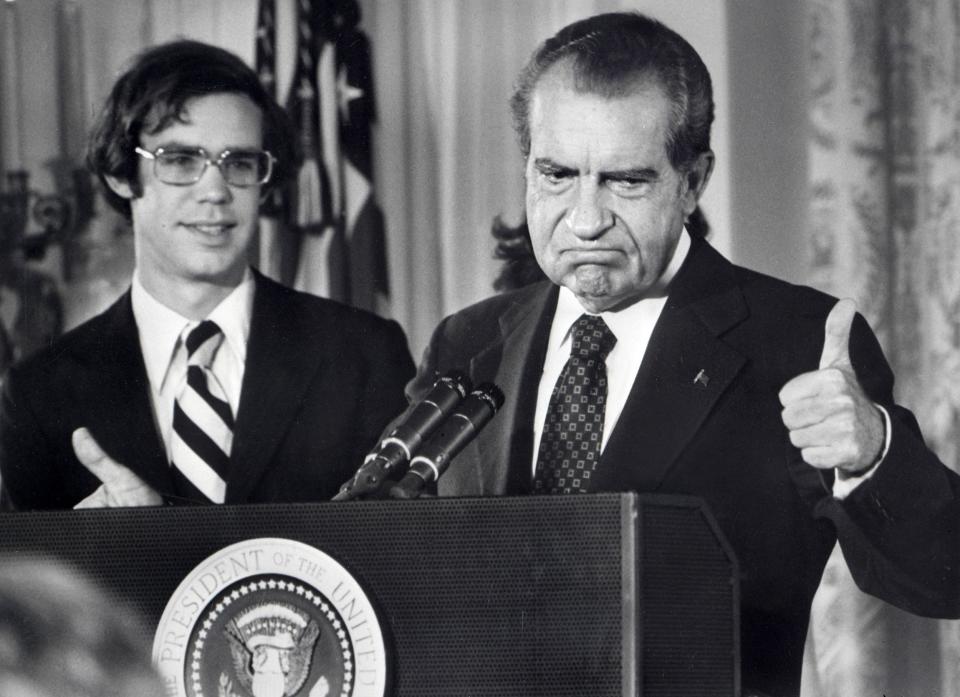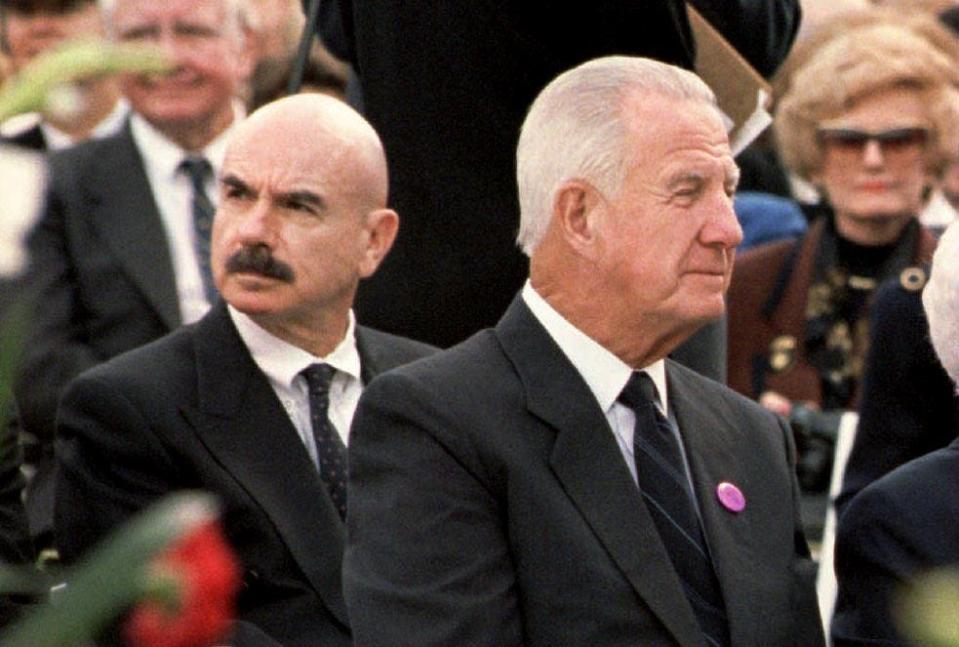Who else from the White House has faced criminal investigation?
Donald Trump is now the first former president and major party presidential nominee in American history to be convicted of a felony.
But he's not the first White House officeholder or candidate to face criminal investigation.
Trump's unprecedented 34 felony counts of falsifying business records follows the likes of former Presidents Richard Nixon and Bill Clinton's notorious in-office scandals, the conviction of Nixon's vice president, Spiro Agnew, and alleged campaign trail misconduct by presidential candidate John Edwards.
More: Despite conviction, Donald Trump vows to fight on
The guilty verdict handed down by a 12-person New York jury yesterday still distinguishes Trump from predecessors, as historians have told USA TODAY.
Here's what to know about the past presidents and White House officials once under investigation.
More: Trump jury had to be unanimous in hush money trial to find him guilty | Fact check
Bill Clinton and the Lewinsky case
Like Trump, whose New York trial centered around an alleged sexual encounter with an adult entertainer, Clinton saw salacious details of an extramarital affair on display during a months-long criminal investigation by special counsel Kenneth Starr in 1998. The Starr probe revealed Clinton had lied under oath by denying an affair with White House intern Monica Lewinsky during a lawsuit filed by Paula Jones, a former Arkansas state employee. Clinton was impeached in the House of Representative and was acquitted by the Senate in 1999.
More: Ivanka Trump, family of Donald Trump react to guilty verdict: 'I love you dad'
Richard Nixon dodges his own case
Before Clinton, one of the country's top presidential scandals occurred after June 1972, when a security guard at the Watergate building in Washington caught a break-in at the Democratic National Committee office.

The incident led back to then-President Nixon and the ensuing cover-up and controversy ultimately led to his resignation August 1974, two years into his second White House term. A host of Nixon aides, including his attorney general, were later convicted in the Watergate scandal.
Nixon bolted from office before Congress could impeach him. His vice president and successor Gerald Ford pardoned Nixon weeks after taking office, saving the disgraced former president from any charges or conviction.
More: Whispers, tension, suspense: What happened in court as judge read Trump's guilty verdict
Spiro Agnew snags sweetheart deal
The Nixon administration was rocked by scandal that extended to the office of the vice president.
Nixon's original vice president was Spiro Agnew, who came under fire in 1973 for bribery allegations tracing back to his time as a county commissioner and governor of Maryland. Agnew faced an FBI investigation for bribery but was not prosecuted for the charge, according to FBI records.

As Nixon was surrounded by his own scandalous circumstances, Agnew took a generous plea deal and resigned in October 1973 while pleading no contest to one count of federal income tax evasion. In exchange, he avoided political corruption charges, paid a $10,000 fine and served three years of unsupervised probation.
Agnew was replaced by Ford, who became president after Nixon's resignation.
John Edwards too faced hush money allegations
Another presidential candidate just over a decade ago faced his own hush money investigation.
Democrat John Edwards of North Carolina was indicted by a federal grand jury in 2011 for allegedly violating campaign finance laws by paying to cover up an affair with a campaign staffer during his 2008 run for office.
One major difference between him and Trump: Edwards was found not guilty on one count and ended up with a mistrial due to a jury deadlock on his five other charges.
This article originally appeared on USA TODAY: Trump preceded by these investigated presidents, candidates


